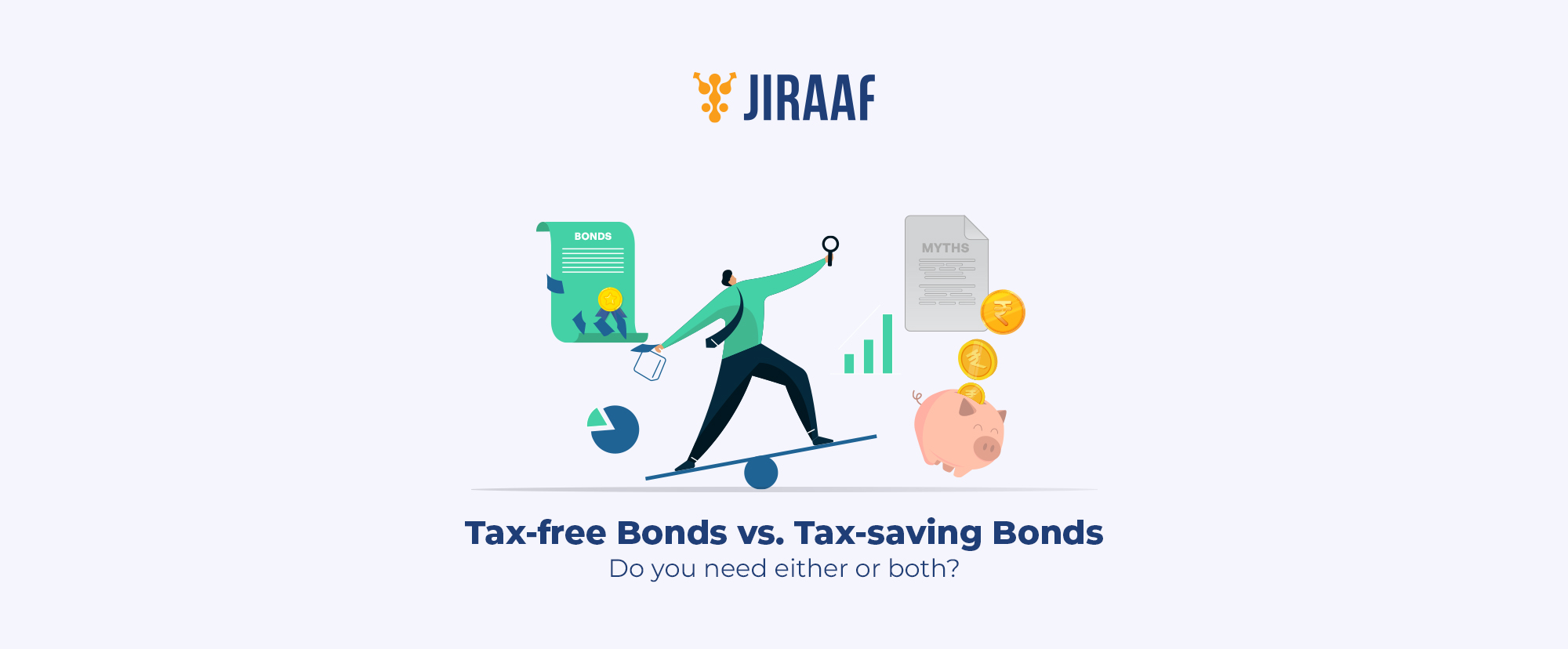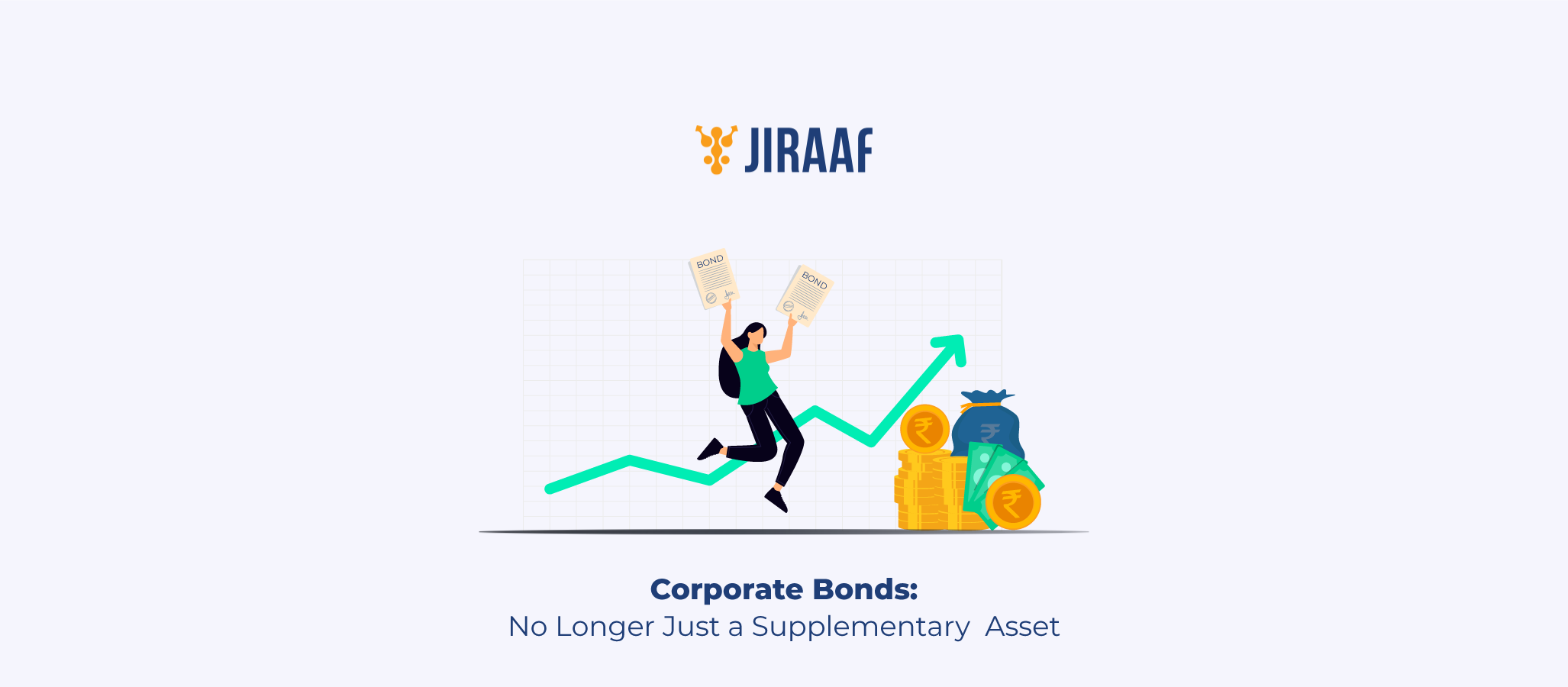Every year, as the tax season draws near, we look at tax-saving investment opportunities. Tax-free bonds and tax-saving bonds are two such instruments which qualify to be discussed at a time like this. However, the distinction between tax-free and tax-saving bonds is often confusing. Each bond offers unique features and tax benefits under the Income Tax Act, 1961. In this blog, we’ll dive deep into these bonds and help you determine which type is most suitable for you.
What Are Tax-Free Bonds?
Tax-free bonds are long-term fixed-income securities issued by government-backed entities. These bonds are government-backed fixed-income securities where the interest earned is exempt from income tax. These bonds are issued by entities such as public sector undertakings (PSUs), infrastructure companies, and municipal corporations.
How Tax-Free Bonds Work?
Investors purchase these bonds at a fixed price and receive periodic interest payments. The principal amount is repaid at maturity. The key advantage of this investment type is that the interest income is not subject to income tax, making it an attractive option for investors seeking tax-efficient returns.
Tax-free bonds include Central Government Bonds, State Government Bonds, and Public Sector Undertaking (PSU) Bonds. They offer interest income exempt from tax under Section 10(15) of the Income Tax Act, with no TDS on the interest. If it’s sold before maturity, profits may be subject to capital gains tax, with short-term capital gains applying to bonds held for a shorter period. For tax-free bonds, typically at maturity, principal is returned without any tax implications on the interest received.
What Are Tax-Saving Bonds?
Tax-saving bonds are fixed-income securities issued by government-authorised entities that offer tax benefits to investors. These bonds are designed to encourage long-term savings and investments while providing tax advantages.
How Tax-Saving Bonds Work?
These bonds offer tax benefits on the investment amount and the interest earned. However, it comes with a lock in period. Selling or redeeming before the hitting the lock-in period will not provide tax benefits.
Tax Saving Potential With Tax-Saving Bonds:
- Section 80CCF: Infrastructure bonds have been designed to encourage investments in infrastructure projects and is useful for taxpayers who want to save taxes by investing in infrastructure bonds. Taxpayers can claim up to ₹20,000 per year permitting individuals and Hindu Undivided Families (HUFs) to avail the benefits. These bonds are issued by organisations like Housing and Urban Development Corporation Ltd. (HUDCO), National Highway Authority of India (NHAI), Rural Electrification Corporation Limited (REC) etc.
- Section 80C: Contributions to life insurance premiums, Employee Provident Fund (EPF), Public Provident Fund (PPF), National Savings Certificates (NSC) etc. allows individuals and Hindu Undivided Families (HUFs) to claim deductions of up to ₹150,000 lakh per financial year under this section. This limit is cumulative for all eligible investments made within the year like
- Section 54EC Bonds: Capital Gains Tax Exemption Bonds, are financial instruments designed to provide tax benefits on long-term capital gains (like land, building or both). To claim this benefit, the taxpayer must invest the capital gains into certain government-specified bonds (such as those issued by NHAI, REC, PFC, and IRFC) within 6 months of the sale. The asset sold must be a long-term capital asset at least 24 months before the sale. The total amount that can be invested in these bonds is limited to INR 50 lakhs within the financial year of the sale and the next financial year. Once purchased, the bonds must be held for 5 years without being transferred or used as collateral for loans.
Tax-Free Bonds Vs. Tax-Saving Bonds
| Aspect | Tax-Free Bonds | Tax-Saving Bonds |
| Applicable Section of the Income Tax Act | Section 10(15) of Income Tax Act | Section 80CCF/80C of Income Tax Act |
| Tenure | Usually long-term, typically 10, 15, or 20 years | Typically, 5 years |
| Issuers | Government entities like NHAI, IRFC, PFC, HUDCO | NHAI, REC, PFC, IRFC |
| Lock-in Period | No specific lock-in; bonds are tradable on stock exchanges | Typically, 5 years |
| Tax Benefits | Interest income is completely tax-free | Capital gains tax exemption on the invested amount (up to ₹50 lakhs) |
| Liquidity | Listed on stock exchanges, can be traded | Non-transferable and cannot be traded |
Bottom Line: Choosing Between Tax-Free Bonds and Tax-Saving Bonds
The choice of instruments is a factor of one’s financial goals, tax situation, risk assessment, and overall investment strategy. Tax-free bonds are best meant for long-term investors seeking tax-free interest income with government-backed security. Suitable for those in higher tax brackets due to the tax exemption on interest.
Tax-saving bonds are ideal for reducing taxable income through investments, though interest is fully taxable. It’s suitable for individuals seeking tax deductions on the investment amount, especially for reinvesting capital gains.
FAQs: Tax-Free and Tax-Saving bonds
Who Issues Tax-Free Bonds?
Tax-free bonds are issued by public sector companies such as NHAI, NTPC, HUDCO, REC, REL, IREDA, PFC, IRFC, and NABARD.
Can I Invest in Both Tax-free and Tax-saving Bonds Simultaneously?
Yes, you can invest in both tax-free and tax-saving bonds simultaneously, provided both are available.
What is the Tenure of Tax-Free Bonds?
These bonds are long-term investments with typical maturities of 10, 15, or 20 years. You will receive the original investment amount upon maturity, while the interest is transferred periodically (quarterly, semi-annually or annually) to your bank account.
How are Tax-Saving Bonds Useful for Reducing my Taxable Income?
Tax-saving bonds help reduce taxable income by:
- Providing a tax deduction on the invested amount, typically under Section 80C or 80CCF of the Income Tax Act.
- Directly lowering your taxable income for the financial year of investment.
- Offering fixed returns, although the interest is usually taxable.
Discover fixed income investments with Jiraaf, a SEBI registered online bonds platform that educates and brings access to a wide array of bonds. Sign up today to explore diversified fixed income investment opportunities to support your goal based wealth creation journey. Start investing!




